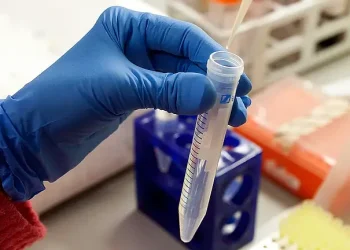The UK’s Medicines and Healthcare products Regulatory Agency (MHRA) has approved polihexanide eye drops for treating acanthamoeba keratitis, a painful corneal infection.
Approved on June 15, 2025, this decision offers new hope for patients at risk of vision loss, emphasizing the UK’s commitment to fast-tracking innovative treatments.
Understanding Acanthamoeba Keratitis
Acanthamoeba keratitis is a rare but serious infection affecting the cornea, often linked to contact lens use and exposure to contaminated water.
The condition can cause severe pain and potentially lead to blindness if untreated.
With limited treatment options available until now, the approval of polihexanide represents a significant breakthrough in addressing this debilitating condition.
Benefits of Polihexanide Approval
- Provides a non-invasive treatment option for acanthamoeba keratitis.
- Reduces the need for hospital visits by allowing home administration.
- Encourages faster access to innovative medicines post-Brexit.
- Supports ongoing safety monitoring through the MHRA Yellow Card scheme.
- Highlights the importance of addressing unmet medical needs in rare diseases.
The Role of International Recognition Procedure
The MHRA’s use of the International Recognition Procedure (IRP) reflects its strategic shift towards leveraging international regulatory decisions while maintaining sovereignty.
This approach not only accelerates access to new treatments like polihexanide but also reassures global pharmaceutical companies about the UK’s openness to innovation.
It sets a precedent for future approvals of orphan drugs and innovative medicines in the UK.
Implications for UK Patients
- Contact lens wearers gain access to an effective treatment option.
- Potential reduction in healthcare costs due to fewer complications.
- Improved quality of life by alleviating pain and preventing vision deterioration.
- Reassurance that UK regulatory systems support access to cutting-edge therapies.
A New Era in Rare Disease Treatment
This approval marks a pivotal moment in rare disease treatment within the UK. By granting both Orphan Drug Designation and Promising Innovative Medicine status, polihexanide underscores its significance as an essential therapy for conditions with high unmet needs.
The MHRA’s decision aligns with global efforts to improve treatments for neglected diseases, fostering collaborative research and market expansion opportunities worldwide.
Additional Reading
A Final Reflection
The approval of polihexanide eye drops signifies progress in treating acanthamoeba keratitis, offering hope for those affected by this rare condition.
As the UK continues embracing international collaboration post-Brexit, patients benefit from faster access to innovative therapies that enhance their quality of life and healthcare outcomes.
More of Todays Top Breaking Government News Stories!
Sources: UK Government, MiraGeneWS, and Medicines and Healthcare products Regulatory Agency.
Prepared by Ivan Alexander Golden, Founder of THX News™, an independent news organization delivering timely insights from global official sources. Combines AI-analyzed research with human-edited accuracy and context.









